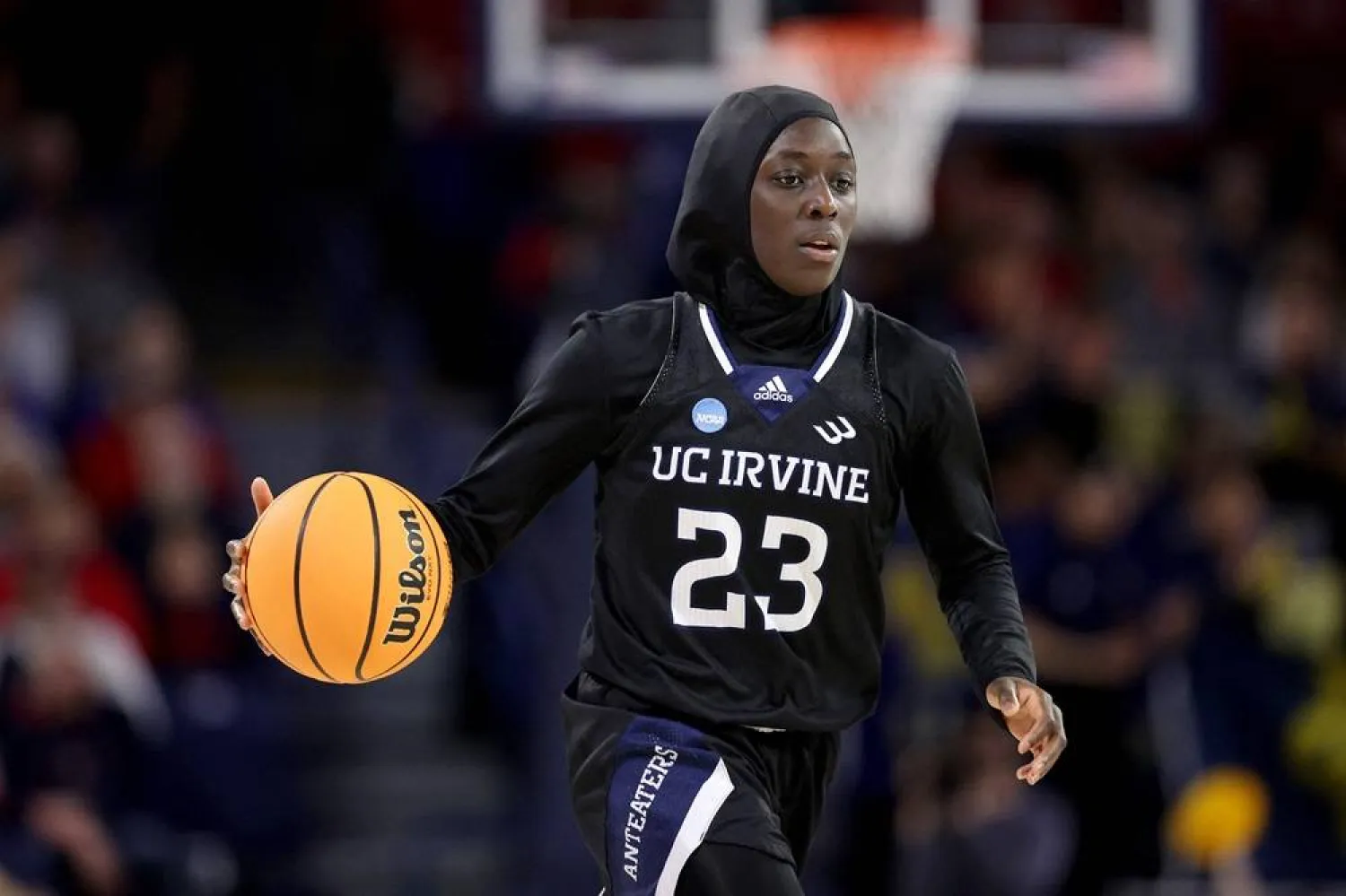N.C. State's Jannah Eissa and UC Irvine's Diaba Konate are leaving a big impact off the court, bringing visibility and inspiration to Muslim women by wearing hjiabs while they play.
They aren't the first women to do it in NCAA Tournament play, but with record viewership and attendance they are certainly getting noticed.
“Representation really matters,” said Konate whose team lost in the first round of the tournament to Gonzaga. “Just having people, young Muslim women wearing the hijab, we’re not there yet. Just seeing us play, I think it makes me really happy because I used to have people that I was looking up to. Now having people that look up to me makes me happy.”
Konate admires Bilqis Abdul-Qaadir, who made NCAA history by being the first to wear a hijab in college basketball when she played for Memphis a decade ago. Abdul-Qaadir was instrumental in getting FIBA to overturn its own ban on headgear in 2017.
Konate started 31 of the team’s 32 games, averaging 7.5 points and nearly four assists. She moved to the US from France after receiving a scholarship from Idaho State. She transferred to UC Irvine as a junior.
She’d love for a chance to play in a hijab at home in France, where she won two medals playing on their youth teams, but as of now the French Federation of Basketball prohibits the wearing of “any equipment with a religious or political connotation”.
“Being French and hosting the Olympics, it really hurts to not be able to be ourselves,” said Konate, who first started wearing the hijab in 2020. “Hopefully, it changes.”
Eissa and Konate have never met, but are aware of each other.
“I just know there’s another woman wearing a hijab,” Eissa said. “I just saw a post about two days ago. I was so happy there are other people.”
Eissa, who turned 18 in February was a walk-on at N.C. State, joining the team after trying out in September. Even though she didn't play much this season — appearing in 11 games and hitting one 3-pointer — her impact is definitely being felt.
Earlier this season a group of young Muslim girls came to her game. They ended up coming a few more times to support her.
“I’d love to say I was a role model to them. Never thought I could be a role model for someone I didn’t know,” said Eissa, who grew up in Cairo before coming to N.C. State. “Never knew one person could make such an impact. They were so young girls and girls my age looking up to me and I was so happy.”
Eissa chose N.C. State because her dad got his PhD from the school and her two older sisters go there.
She said that even when she was having a bad day or an off day, she'd remember her young fans and it would make her happy.
“If they see someone giving them hope, I’m happy that I’m the person to give it to them," Eissa said. “I want to make it as far as I can for the image of women in hijabs.”









